A South American frog has a tongue so sticky it can generate pulling forces three times the animal's own bodyweight, scientists reported on Thursday.
The amphibian with the lingual power is the horned frog -- Ceratophrys in Latin -- which is famous for grabbing outsized prey like snakes, lizards, crabs and rodents.
 Full Story
Full Story
Penguin species in the Antarctic that once benefited from rising temperatures are now in decline due to warming gone too far, scientists said Thursday.
Previous scientific research was unable to determine why populations of Adelie and chinstrap penguins are in decline, while gentoo penguins are increasing in numbers.
 Full Story
Full Story
NASA is preparing a July 1 launch for its first satellite dedicated to measuring atmospheric levels of carbon dioxide, a greenhouse gas that plays a key role in climate change.
CO2 levels have reached their highest point in at least 800,000 years, according to the U.S. space agency.
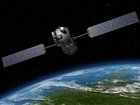 Full Story
Full Story
A galley water heater is being blamed for smoke aboard the International Space Station.
Russian astronauts reported smoke and a burning smell in their main compartment Tuesday. There wasn't enough smoke to activate the alarms or to warrant the use of masks by the six-man crew. The smoke came from a vent and dissipated within a half hour or so.
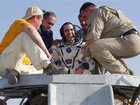 Full Story
Full Story
New fossils are providing critical details about one of the earliest known fishes, and researchers say that helps show how jaws evolved in animals that have backbones.
The fish is called Metaspriggina. Researchers say it grew about 2 inches (5 centimeters) long and lived widely in North America some 515 million to 500 million years ago.
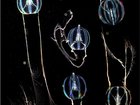 Full Story
Full Story
State biologists are reminding people not to touch moose calves or try to take them home as pets following a string of incidents involving people handling the animals, including one household that had a calf in the living room "as if it was a puppy."
Moose are being born in Alaska this time of year, and biologists say people should leave the calves alone — even if they seem to have been abandoned by their mothers.
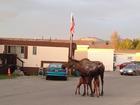 Full Story
Full Story
Australia on Thursday said it was confident the Great Barrier Reef would avoid a World Heritage downgrade after a new report card showed pollutants entering the water had been significantly reduced.
UNESCO had warned that without action on water quality and rampant coastal development, the reef -- covering an area roughly the size of Japan -- would be declared "World Heritage in Danger".
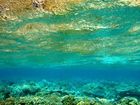 Full Story
Full Story
Environmental campaigners WWF and oil exploration firm Soco International announced on Wednesday that the British firm had agreed to halt its hunt for oil in part of Africa's oldest national park.
In a joint statement, they said the WWF had in turn pledged not to pursue a complaint against Soco which it had filed with the Organisation for Economic Cooperation and Development.
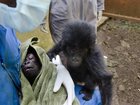 Full Story
Full Story
NASA is getting ready to launch a "flying saucer" into Earth's atmosphere to test technology that could be used to land on Mars.
For decades, NASA has depended on the same parachute design to slow spacecraft after they enter the Martian atmosphere. But it needs a larger and stronger parachute if it wants to land heavier objects and astronauts.
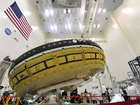 Full Story
Full Story
Australia's controversial shark cull could snare more than 900 animals over the next three years, a government review found, angering critics who said Tuesday most were caught needlessly.
Western Australia state has applied to national authorities to extend the policy designed to protect swimmers, under which sharks are captured using bait, and then killed if they are a threatening size.
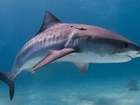 Full Story
Full Story



